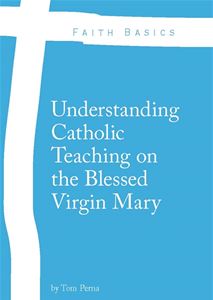Saint Bonaventure was born in the year 1221 at Bagnorea in the Province of Viterbo (129 kilometers north of Rome, Italy). He was given the name Bonaventure (“bona” – good and “venture” – event or “fortune”) after he was healed from an illness as a child through the intercession of St. Francis of Assisi.
As a young man, he joined the Order of Friars Minor, one of the three Franciscan orders founded by Saint Francis. As a student, he studied under the great “Unanswerable Doctor”, Alexander of Hales, at the University of Paris – an epicenter of some of the greatest theological minds the Catholic Church has in her ranks. From 1248 to 1257, St. Bonaventure taught theology and biblical theology at the university.
As a Friar Minor, St. Bonaventure was called to live a life as a priest. He lived his priestly vocation with great vigor and sought to bring many souls to Jesus Christ. As a preacher, no one rivaled him for he brought the fire of God into the hearts of the faithful who heard his eloquent and orthodox words. Many who heard his words fell in love with Jesus Christ and the Catholic Church.
As a professor of theology at the University of Paris, life was rather difficult because of the attacks the Franciscans endured at the hands of the secular professors (also clerics but not in orders). Because the Franciscans were great at bringing souls to Christ with their superb teaching and pastoral skills, the other professors who often were jealous, charged them with error and scandal. The secular professors also did not like that the Franciscans rejected the material items of the world. They felt the Friars had no “real world” experience and believed they could not teach the students properly and should be removed from the school.
After the writing of two books, one attacking the Friars written by William of Saint-Amour and the other defending the Friars written by Bonaventure himself, Pope Alexander IV intervened and sent a commission of cardinals to asses the issues at hand. After finding that Saint-Amour’s book was false in its accusations, the commission ordered that his book be burnt. They also reinstated the Friars to the university and ordered the secular professors to silence their attacks.
In the year 1257, Saint Bonaventure along with the Angelic Doctor, Saint Thomas Aquinas (a Dominican), were awarded the doctor of theology together by the University of Paris. In the same year, the Friar Minors elected him as the minister general to the order. He was just 36 years old.
As Bonaventure was handed the reigns, he found the order in disarray. There were fractions among the friars – some believed the order was too stringent while others believed the order was too lax. There were the Spirituals, extremists, who fell into error and were deliberately disobeying the rule. During the attacks on the Friar Minors at Paris, this group of extremists assisted the secular professors. Overall, it was a complete mess!
With his strong intellect and love for the gospels, St. Bonaventure sent an extensive letter to his provincials demanding that the rule be followed with obedience, but with some reformation. To the Spirituals, he gave them nothing, because they deserved nothing! In 1260, he held five general chapters that produced constitutions on the rule of the Friar Minors. These constitutions were adopted and had a major impact on the order in the centuries ahead. However, his work on the rule did not appease everyone, as it seems even today in most cases. Someone will dislike even the best solutions.
During the chapters at Narbonne, the Friars who were gathered requested that Bonaventure write the life of Saint Francis. He wrote his life well and showed the great virtues of St. Francis and the beauty of the order he founded.
Since he did such a great work reforming the Friars Minor, Pope Clement IV, in 1265, asked St. Bonaventure to be the archbishop of York. Although he asked the Holy Father not to elevate him to the episcopate, he was still made cardinal-bishop of Albano by Blessed Gregory X in 1273. Gregory asked Bonaventure to oversee the matters for the Second Council of Lyons in 1274, which brought the Greeks back in union with Rome. Although the greatest theologians of the time were invited, St. Thomas Aquinas died en route – St. Bonaventure was the “man of the hour” at Lyons.
During the second and third chapters of the council, he resigned his position as minister general of the Friar Minors. As the Greek delegates for Emperor Michael Palaeologus arrived, he accepted them and they were reunited with Rome again. In order to give praise and thanksgiving for the reunification of the Greeks with Rome, the Holy Father chanted the Holy Mass on the feasts of St. Peter and Paul. The second reading, gospel, and Nicene Creed were chanted in both Latin and Greek. At request of the Pope, St. Bonaventure preached during the Mass.
On July 15, the night before the fourth session of the council was set to begin, Saint Bonaventure died and entered Heavenly glory. As the minister general of the Friar Minors, he served faithfully for 17 years. He is known as the “second founder” after St. Francis of Assisi.
His greatest work, which he wrote while teaching theology at the University of Paris, is the Commentary on the Sentences of Peter Lombard. Its focus is the entire systematic approach of scholastic theology. For the Poor Clares at Longchamps, he wrote Concerning Perfection of Life. Along with many other writings, he wrote two mystical works – Soliloquy and Concerning the Threefold Way.
Saint Bonaventure was canonized a saint of the universal Church in 1482 by Pope Sixtus IV (the same Pope who constructed the Sistine Chapel). In 1588, by Pope Sixtus V, Saint Bonaventure – The Seraphic Doctor, was declared a Doctor of the Church. He is the patron saint of bowel and intestinal diseases.
Source:
Walsh, Michael. Butler’s Lives of the Saints. HarperSanFrancisco, 1991
Categories: Saints & Angels










The other professors were also clerics, but they were not mendicants. One had to be in the clerical state to receive an advanced degree at the time.
Yes, Sue. Thanks for the clarification.
“To the Spirituals, he gave them nothing, because they deserved nothing!” seems out of place in the overall tone of this piece.
I would have been interested to see you expand on that sentiment, or leave it out all together.